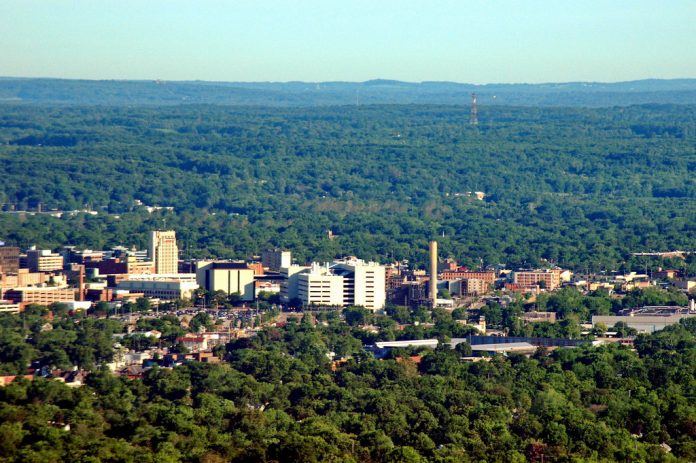(The Center Square) – Claims that sports activities generated $15.4 million of economic activity in Kalamazoo County are being disputed by several economists.
Discover Kalamazoo Sports made the claim in a news release earlier this week, noting the economic activity derived from direct visitor spending directly resulting from more than 40 sporting events held in the county in 2021. According to DKS approximately 20,000 youth, amateur, college and professional athletes participated in sporting events and availed themselves of lodging, transportation, food and beverage, retail, recreation, and other business services.
“We use things like number of event days, type of sports event (youth, amateur, collegiate, professional, etc.), number of participants, percentage of out-of-town visitors, hotel room nights, average daily rate, etc. – these are just a few examples of what gets taken into consideration, in addition to local tax formulas,” wrote Brian Persky, DKS director of sports event development, in an email to The Center Square.
Persky explained DKS is a division of the Kalamazoo County Visitors Bureau, which collects between $2 million to $2.2 million each year from a 5% tax on hotel rooms. He added 71% of the hotel tax is appropriated to the Visitors Bureau, while 28% of the tax helps fund the administrative costs of the county’s parks. The remaining 1% of tax revenue pays for county administrative costs.
Persky noted the DKS used a Destinations International calculator to estimate the economic impact of DKS activities.
“The Destinations International tool is not a credible source for economic impact estimates,” J.C. Bradbury, an economist from Kennesaw State University in Georgia, told The Center Square. “The same group claimed the MLB All-Star Game would have a $100 million economic impact on Atlanta, which was widely ridiculed by economists familiar with the subject.”
Bradbury added: “To me, this looks like a generic advocacy report that is trying to account for all activity that might be connected with a certain activity and then assigning net causal impact from it. In short, it does not look credible, and I would not put much stock in it.
Bradbury’s skepticism is echoed by University of Michigan-Flint Economist Chris Douglas.
“An issue with these studies is whether these rooms would have remained vacant absent these events,” Douglas told The Center Square. “If the answer is ‘no,’ which is arguably the case for events like the Super Bowl, then rooms rented for the event just displace whoever else would have stayed there. That means there is no net increase in spending. Maybe it is more likely that rooms in Kalamazoo would have remained empty absent these events,” he said.
Douglas said the number of room nights claimed by the DKS in its release could be inflated. He noted the DKS claim that the 470 affiliates of the U.S. Tennis Association rented 2,880 room nights at Kalamazoo County hotels, “assuming each person got his/her own room” for six nights per person.
“The economic impact per person seems high,” Douglas said. “The USTA had 470 people generate $1.2 million in economic impact, or $1.2 million/470 = $2,550 per person.”
Douglas also questioned the DKS numbers associated with the Michigan High School Wrestling Association tournament. Citing DKS figures, Douglas said the “wrestling tourney had 1,000 people generate $704,488 in economic impact, or $704 per person. That is more reasonable, but still seems high. Does an average person in a high school family generate over $704 in economic impact going to a wrestling event?”
Douglas continued that the economic impact from various sporting events is unlikely to be zero, but likely to be overstated in studies like this.
“Usually economic impact studies are used to build a case for government subsidies for various special events. That does not appear to be the case here, which makes the economic impact study less of a concern,” he said.
Originally published by The Center Square. Republished with permission.











[…] post Economists Question Kalamazoo Sports Organization’s $15.5M Boast appeared first on Heartland Daily […]